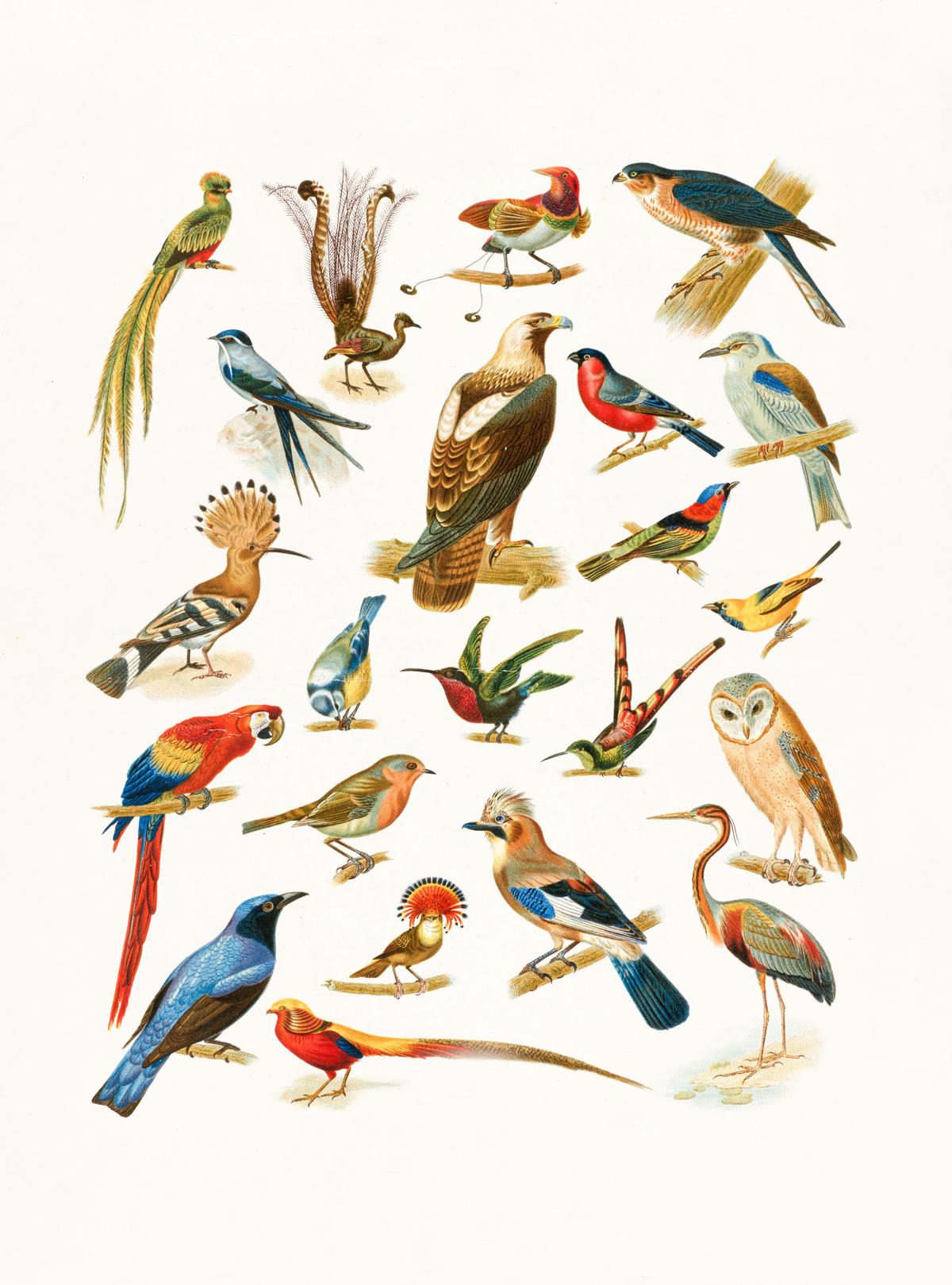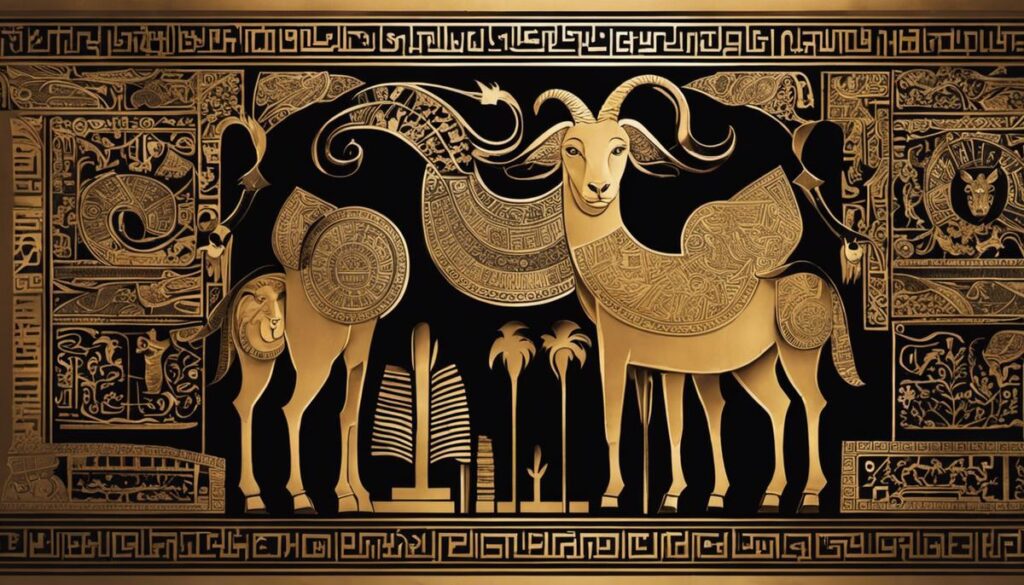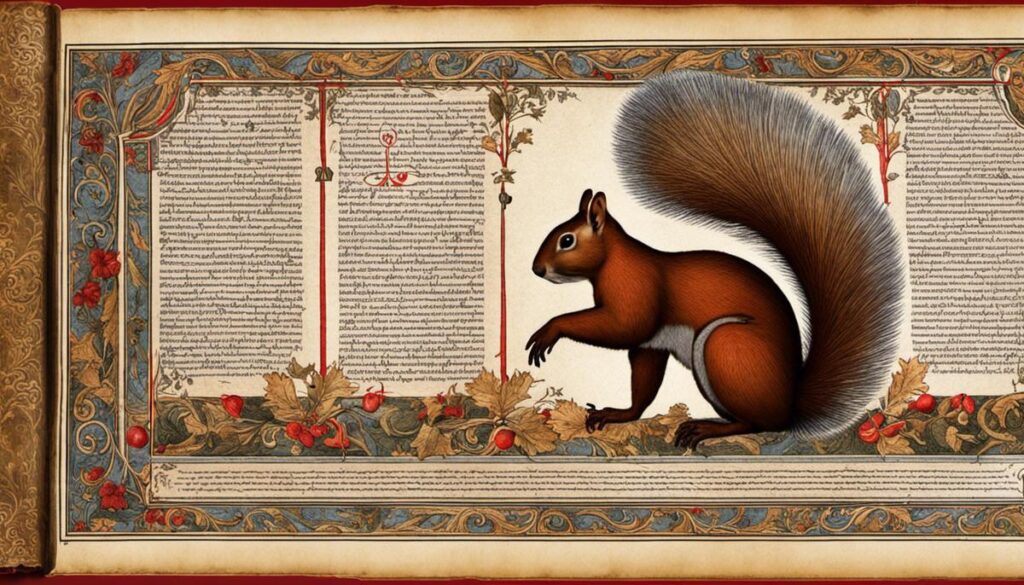Delving into the rich symbolism that the biblical landscape offers, we find a myriad of metaphors, parables, and symbols, often conveyed through dreams and visions. Throughout scriptures, various elements of the natural world have been employed to represent spiritual ideas, one of which is the notion of ‘birds’. Not only do birds have their own distinctive presence in biblical accounts, but different species of birds also portray a spectrum of spiritual messages. The degree of complexity and variation in these metaphors can easily enthrall anyone’s mind. Moreover, dreams play a significant role in the Bible, serving as a medium through which divine messages and prophetic visions are often conveyed. This paper intends to weave together these two threads of biblical symbolism and dream interpretation to provide a focused interpretation of ‘baby birds’ appearing in dreams.
Symbolism of Birds in Biblical Scriptures
Birds As Symbols and their Significance in Biblical Scripture: An Insightful Analysis
One never needs to look further than nature to draw parallels with biblical teachings. A particularly fascinating and frequently referenced group in biblical scriptures are birds. As we delve into this remarkable relationship, one can appreciate the depth and richness of the symbolism associated with these winged creatures.
One must begin with the widely recognized example of Noah’s dove. Genesis (8:8-12) gives us a gripping account of how a dove returned to Noah with an olive leaf in its beak, signifying that the Deluge was over and life had started to regenerate on Earth. Here, the dove symbolizes hope, renewal, and new beginnings—a testament to the universal power of resilience.
Next on the list is the raven, which holds a rather complex and multifaceted symbolic significance. Ravens are typically associated with providence due to the biblical account in 1 Kings (17:4-6), where God commands ravens to feed the prophet Elijah during a famine. Yet, in other contexts, they are seen to symbolize isolation and desolation, mirroring their natural inclination towards solitary survival.
Further, within the biblical sphere, the sparrow holds a powerful meaning in spite of its small size. In the Gospel of Matthew (10:29-31), Jesus made it clear that not a single sparrow falls to the ground without the Father’s knowledge, highlighting His care for even the most minute of His creations. It is a poignant representation of God’s omnipresence and His immense care for every living creature.
Poised and dignified, the eagle in scriptures has often been associated with strength, courage, and resilience. The Bible verse Isaiah (40:31) promises that those who hope in the Lord will renew their strength and soar on wings like eagles, symbolizing the profound strength and grace one derives from spiritual faith.
When approached with consideration, the peacock delivers a mesmerizing allegory. Traditionally, it is a symbol of immortality, an idea springing from the bird’s ability to consume poisonous snakes without harm and its dramatic molt and regrowth of feathers. Its vibrantly ornate feathers, to many, reflect the glories of heaven—thus adding another dimension to its biblical representation.
Leading us towards wisdom is the owl, characterized as a contemplative and solitary creature. In the Bible, the owl’s frequenting of deserted and ruined places has led to its symbolic connection to desolation and abandonment. However, with its widespread association with wisdom in various cultures, the owl often invites a deeper exploration of its figurative presence in biblical context.
To conclude, as diligent students and enthusiasts of both ornithology and theology, the symbolic resonance of birds within biblical scriptures presents a kaleidoscope of meanings—from strength and resilience to desolation and wisdom. A thorough understanding of these symbols adds depth to one’s biblical interpretation and appreciation.

Photo by bostonpubliclibrary on Unsplash
Interpretation of Dreams in Biblical Context
Examining the Crucial Role of Dreams within a Biblical Framework
In the rich tapestry of Biblical literature, dreams serve as foundation stones for critical narratives that continue to resonate with the faithful today. Far from being random amalgamations of human thought, dreams are depicted in the Bible as conduits for divine messages that chart a course for human action – a fascinating blend of prophecy and wisdom, creativity, and communication.
Renowned Biblical figures like Joseph and Daniel are venerated as interpreters of dreams, their respective tales in Genesis and Daniel showcasing vivid examples of dreams as vessels for divine revelation. In Genesis 37, young Joseph’s dreams offer cryptic previews of his destined authority over his older brothers, despite initial tumultuous outcomes. Similarly, Daniel is blessed with the divine gift of dream interpretation, translating King Nebuchadnezzar’s fiery visions into prophetic events set to transpire in Babylon’s future.
In both instances, dreams are not reduced to simple objects of curiosity. Instead, they act as an active and engaging channel between the divine and the mundane. Dreams bring prophetic voices to life, signaling impending calamities or fortunate events, providing warnings, or revealing God’s plans, demonstrating an intimate and involved God who communicates with his chosen people.
Notably the Book of Job presents a distinctive perspective on dreams – unsettling dreams from God sent as chastising mediums. One experiences God through visceral dream-induced fear rather than comforting revelation, underscoring the multifaceted nature of Biblical dream interpretation.
The New Testament further extends the portrayal of dreams as a divine communication tool. Matthew’s narrative offers instructions and revelations provided through dreams, as seen with Joseph, the husband of Mary. Here, dreams provide crucial navigational cues discerning God’s will – a pastoral figure guided by heavenly insights.
In Acts, the notion of prophetic and divinely inspired dreams surface again through Prophet Joel’s prediction: “Your young men will see visions, your old men will dream dreams” (Acts 2:17). This scripture signifies not just the continuity but the intensification of dreams as a medium of divine communication during the highly transformative years of early Christianity.
By delving deeper into the denotations of dreams within the Biblical landscape, one can comprehend their symbolic importance in shaping theology and narrative direction. These instances showcase dreams as active, driving forces of divine narrative, blurring the lines between the mystical and the practical, the cosmic and the personal.
In essence, dreams in the Bible are not merely abstract or passive symbols; they represent active, dynamic plot devices that connect mortals with God’s divine plan. Whether as prophetic communications, chastising tools, or guiding revelations, they anchor individual stories into the grander God-centric narrative of the Bible, a testament to the intricate weave of symbolism and theology within this revered text.

Baby Birds as Dream Symbols
Shifting our focus toward the remarkable figure of ‘baby birds’ in dreams, we unearth compelling layers of symbolism that paint a rich tapestry of interpretation. ‘Baby birds’ as dream symbols, though less classically resonate than their adult counterparts, convey poignant and deeply impactful messages.
In understanding the symbolic interpretations of ‘baby birds’, it’s essential to first appreciate the generally understood meanings of ‘birds’ in dream representation. Birds, as free-flying creatures of the air, often symbolize aspirations, objectives, or hopes that someone is aiming to achieve. From this canvas, we progress into the world of ‘baby birds’, imbued with undeniable innocence, vulnerability, and potential.
The presence of ‘baby birds’ in dreams might reflect the manifestation or emergence of new ideas, relationships, or stages of life. They are nature’s own metaphor for the genesis of something fresh, untested, and full of potential. These birds, yet to stretch their fledgling wings, can symbolize the growth phase in projects or relationships, cloaked in the gentleness of beginnings and the fragility that accompanies new ventures.
Additionally, ‘baby birds’ might denote feelings of dependency or the need for nurturing. These small creatures are often seen in their nests, relying entirely on the care of their parents for survival. Thus, such a dream could indicate a state of vulnerability or a deep-seated desire for protection and guidance.
On another level, dreaming of ‘baby birds’ can also indicate a sense of hope or optimism. Just like a fledgling about to embark on its first flight, such a dream can symbolize the thrill of new beginnings or ventures, carrying the energy of new hopes and the promise of exciting challenges.
Finally, in realms of spirituality, ‘baby birds’ signify the spirit’s purity. Nestled in the nest, unblemished by the harsh realities of the world, they may symbolize purity or innocence that remains untouched and pristine.
Unraveling the profound symbolism inherent in ‘baby birds,’ we find echoes of vulnerability, burgeoning potential, dependency, hope, and spiritual purity. These multilayered interpretations remind us of the intricate tapestry that forms the symbology of dreams. By peering into these realms, we gain a more profound understanding of our subconscious and the divine messages conveyed through dreams.

Biblical Interpretation of Dreams About Baby Birds
Interpreting the Biblical Symbolism of ‘Baby Birds’ in Dreams
Biblical interpretation of dreams commands a deep-rooted fascination, often featuring a rich tapestry of symbols that have been extensively studied and dissected. Birds, an integral part of this symbol system, have been covered in previous discussions concerning the dove, raven, sparrow, eagle, peacock, and owl. However, the intriguing symbolism of ‘baby birds’ in dreams calls for particular attention.
In the reading of dreams, symbols have layers, carrying meanings that may transcend conventional limits. ‘Baby birds’, thus, warrant a thorough exploration in this context, and can be thought of as denoting innocence and vulnerability. The images of baby birds, tender and new to the world, can resonate with feelings of dependency and the need for protection – themes often recurring in dreams.
Biblically, the symbolism of ‘baby birds’ could entail the manifestation or emergence of new beginnings, fitting within the broader theme of renewal consistently found in Scripture. Dreams featuring these delicate creatures could point to the advent of fresh ideas, relationships, or phases of life, symbolic of the nascent periods often associated with youth and vitality.
In the theological perspective, the appearance of ‘baby birds’ may also imply growth phases in personal projects or relationships, suggesting transitions from infancy towards maturity. Considering the nurturing environment often needed for baby birds to thrive, these dreams could represent elements of personal growth that require tender care and observation.
In an uplifting vein, ‘baby birds’ in dreams may also hold a sense of hope or optimism. Their presence could indicate an awakening of positive emotions and a readiness to step into new, uncharted territories in life – signifying a newfound optimism filtered through a divine lens.
The Bible often uses purity and innocence as dominant themes, values also symbolized by ‘baby birds’, due to their innate purity and untouched worldview. The appearance of them in dreams can hence hint at spiritual transformations or the yearning to return to a state of innocence.
By extending the symbolic interpretations of birds in dreams and focusing on the unique implications of ‘baby birds’, a richer understanding of biblical dream symbology can be acquired. It allows the integration of multiple elements – spiritual cues, personal introspection, and biblical narratives – to derive a cohesive interpretation.
This detailed exploration into the symbolism of ‘baby birds’ in biblical dream interpretation serves to emphasize the intricate connection between our subconscious and divine messaging. Through these symbols, the profound spiritual essence embedded within the mundane beckons exploration, uncovering the vast expanse of wisdom encoded in biblical allegories embedded in dreams. Dreams serve as a distinctive bridge between human comprehension and divine communication, with symbols such as ‘baby birds’ illuminating our path in this transcendental journey.

To interpret dreams, especially those that manifest imagery as potent and varied as birds, an appreciation of the biblical perspective is crucial. The Bible’s meticulously recorded dreams, visions, and symbols have laid a blueprint for modern-day dream analysis. Our exploration uncovers that the presence of ‘baby birds’ in dreams is significant, embodying themes such as new beginnings, innocence, vulnerability, and dependence. Whether seen as delicate fledglings ready to take their first flight or as vulnerable creatures in need of protection, they provide intuitive and deeply personal insights. Grounding our understanding in biblical teachings, we not only gain a broader perspective but also form meaningful connections between tangible symbols and spiritual realities. Such interpretive journeys can help us discern our own dreams better, enriching our spiritual lives and guiding us closer to understanding the divine messages sewn within the fabric of our unconscious mind.








